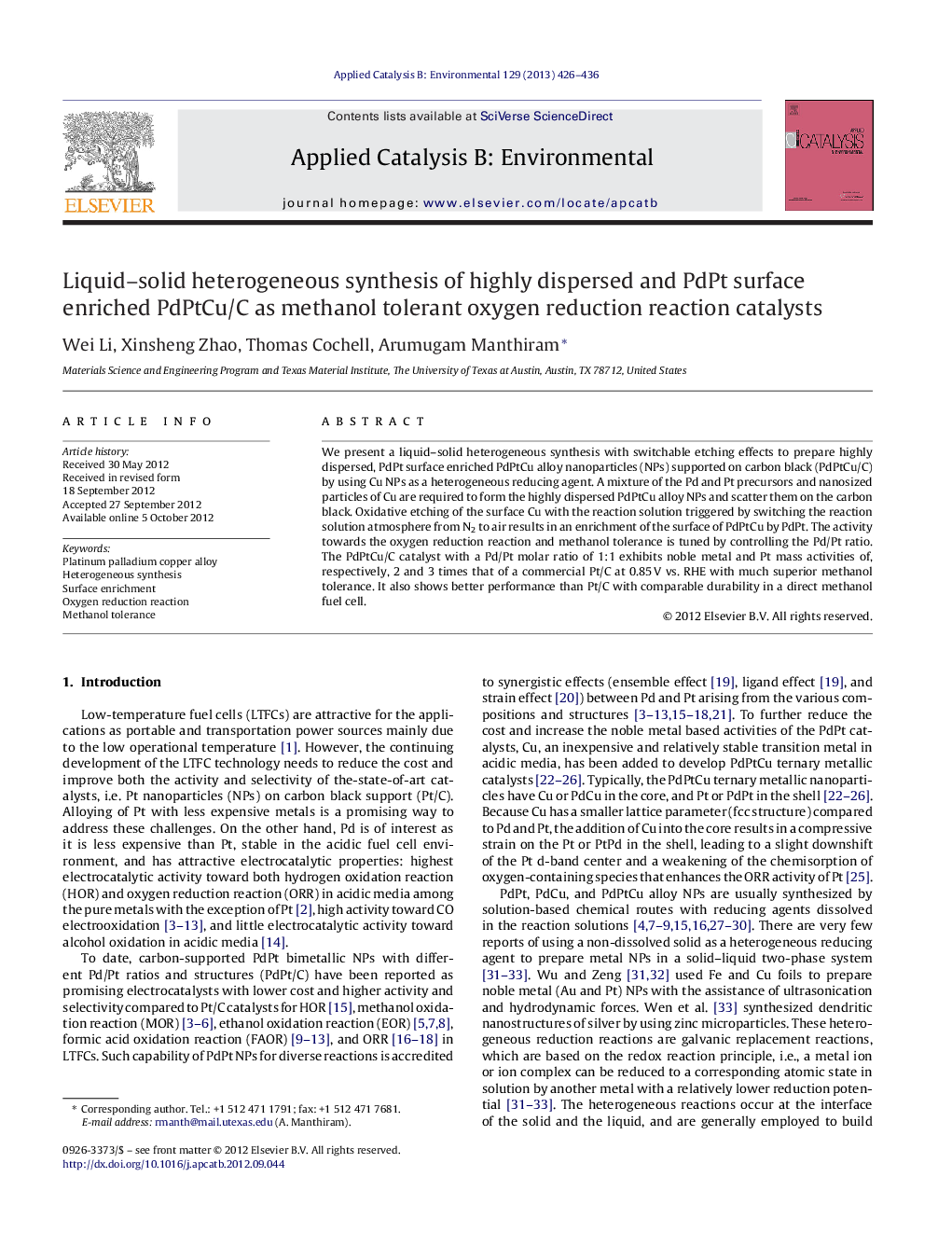| Article ID | Journal | Published Year | Pages | File Type |
|---|---|---|---|---|
| 46025 | Applied Catalysis B: Environmental | 2013 | 11 Pages |
We present a liquid–solid heterogeneous synthesis with switchable etching effects to prepare highly dispersed, PdPt surface enriched PdPtCu alloy nanoparticles (NPs) supported on carbon black (PdPtCu/C) by using Cu NPs as a heterogeneous reducing agent. A mixture of the Pd and Pt precursors and nanosized particles of Cu are required to form the highly dispersed PdPtCu alloy NPs and scatter them on the carbon black. Oxidative etching of the surface Cu with the reaction solution triggered by switching the reaction solution atmosphere from N2 to air results in an enrichment of the surface of PdPtCu by PdPt. The activity towards the oxygen reduction reaction and methanol tolerance is tuned by controlling the Pd/Pt ratio. The PdPtCu/C catalyst with a Pd/Pt molar ratio of 1:1 exhibits noble metal and Pt mass activities of, respectively, 2 and 3 times that of a commercial Pt/C at 0.85 V vs. RHE with much superior methanol tolerance. It also shows better performance than Pt/C with comparable durability in a direct methanol fuel cell.
Graphical abstractFigure optionsDownload full-size imageDownload as PowerPoint slideHighlights► We present a solid–liquid heterogeneous synthesis with switchable etching effects. ► Copper nanoparticles work as a reducing agent. ► Highly dispersed, PdPt surface enriched PdPtCu nanoparticles are deposited on carbon black. ► The prepared PdPtCu/C catalysts have composition-dependent catalytic activities.
